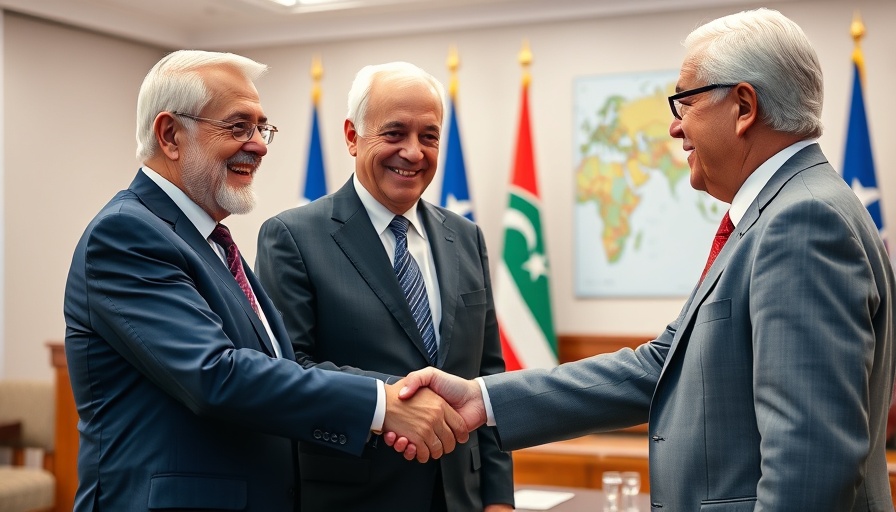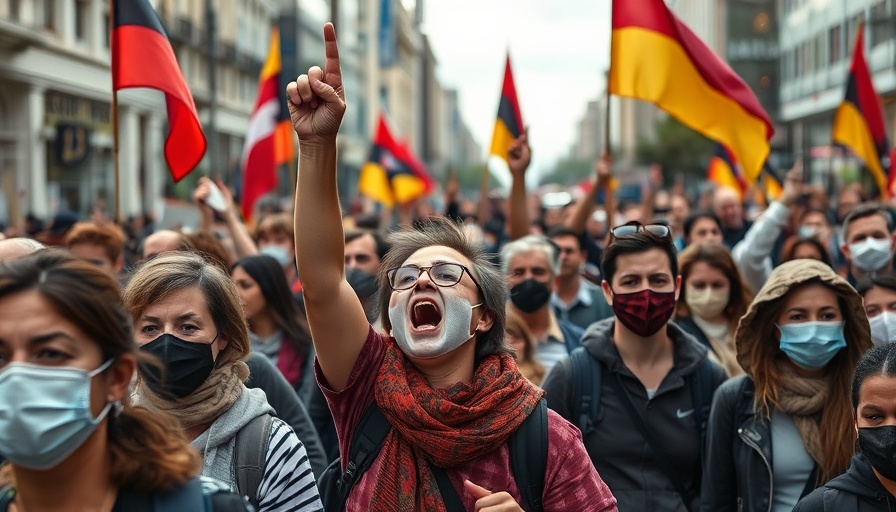
Examining the Unfolding Pay Raise Debate Among Nigerian Politicians
The recent discussion surrounding potential pay increases for Nigerian politicians has ignited a significant uproar among citizens, particularly coming in the wake of escalating costs of living and economic challenges faced by the average Nigerian. As the Revenue Mobilization, Allocation, and Fiscal Commission considers raising salaries that have stagnated since 2008, the sentiment among the populace is one of incredulity and anger.
In 'Nigeria Politicians’ Pay Rise Debate, Anambra Assault Fallout and Toke Makinwa’s Pregnancy Reactions,' critical themes of governance, public sentiment, and social expectations are explored, prompting us to analyze these ongoing issues in depth.
Historical Context: A Comparison to Economic Reality
The call for a pay raise, with current salaries of public officials sitting at 1.5 million naira for the president and under 1 million for ministers, stands in stark contrast to the reality that many Nigerians face. With the national minimum wage only recently raised to 70,000 naira, critics argue that any adjustment to political salaries is not only unjustified but also tone-deaf. Considering that Nigeria's inflation has significantly diminished purchasing power, many feel that this push for an increase is tantamount to rewarding failure rather than incentivizing genuine leadership.
The People’s Perspective: Voices from the Streets
A glance at public sentiment reveals a consensus that politicians should not seek higher salaries while millions are unemployed or underpaid. Nigerians express a desire for governance that prioritizes their welfare over lavish political appointments. The frustration expressed in grassroots feedback reflects a yearning for palpable change and accountability from leaders who they believe have continually let them down.
Current Events: Vigilante Violence Against Youth Corps Members
In tandem with the politicians' salary discussion, another pressing issue has emerged, as evidenced by the brutalization of a female National Youth Service Corps member in Anambra by vigilante operatives. This incident has sparked outrage and further underscores the societal crises that stem from mismanagement and lack of official accountability. The Anambra State government's swift action, which involved dismissals and commitment to prosecution, brings hope that such violence might be deterred in the future. Nevertheless, calls for reforms in the approach to citizen safety and human rights remain paramount.
Perspectives on Gender and Choices: The Fallout from Personal Decisions
The announcement of media personality Toke Makinwa's pregnancy has ignited a media storm, stirring conversations about societal expectations of women, single motherhood, and judgment surrounding personal choices. Amidst a culture that often vilifies single mothers, observers note the double standards in public reactions: support for some while condemnation for others lacks consistency. This modern narrative reflects deeper issues regarding women's autonomy, the rights to their bodies, and societal pressures that mandate conformity.
Critique on Public Relations: The Politicians' Image Crisis
The apparent disconnect between government officials and citizens erects barriers to authentic dialogue. As one participant remarked, politicians are perceived as being so out of touch that they need professional public relations experts to genuinely empathize with the populace. This detachment breeds skepticism and cynicism among citizens who assume political statements come not from sincerity, but strategy.
Beyond Salary Increases: Bridging the Gap Between Leadership and Responsibility
Critics argue that without fundamental changes in governance, raising salaries will do little to alter the status quo. The focus should instead be on performance metrics, accountability for corruption, and enhancing the quality of life for citizens rather than just augmenting political compensation. If leadership must come at a cost, it ought to be one that nurtures societal growth rather than engendering unrest.
Conclusion: What Lies Ahead for Nigeria?
The pathways forward remain fraught with challenges. While public opinion suggests dissatisfaction with the status quo, the voices echoing in the streets hold significant weight in shaping the future of the country. Critical dialogues about pay raises, security forces, and societal values must transform into actionable reforms that resonate with the needs of the populace.
This is a pivotal moment for Nigeria as it wrestles with leadership that must adapt to contemporary expectations. Citizens deserve leaders who are unafraid to take on the pressing issues of their time, ensuring progress that reflects the voices of the Nigerian people. Let us continue watching how these interconnected narratives play out in the public sphere while advocating for change that breaks the cycle of disillusionment.
 Add Row
Add Row  Add
Add 


Write A Comment